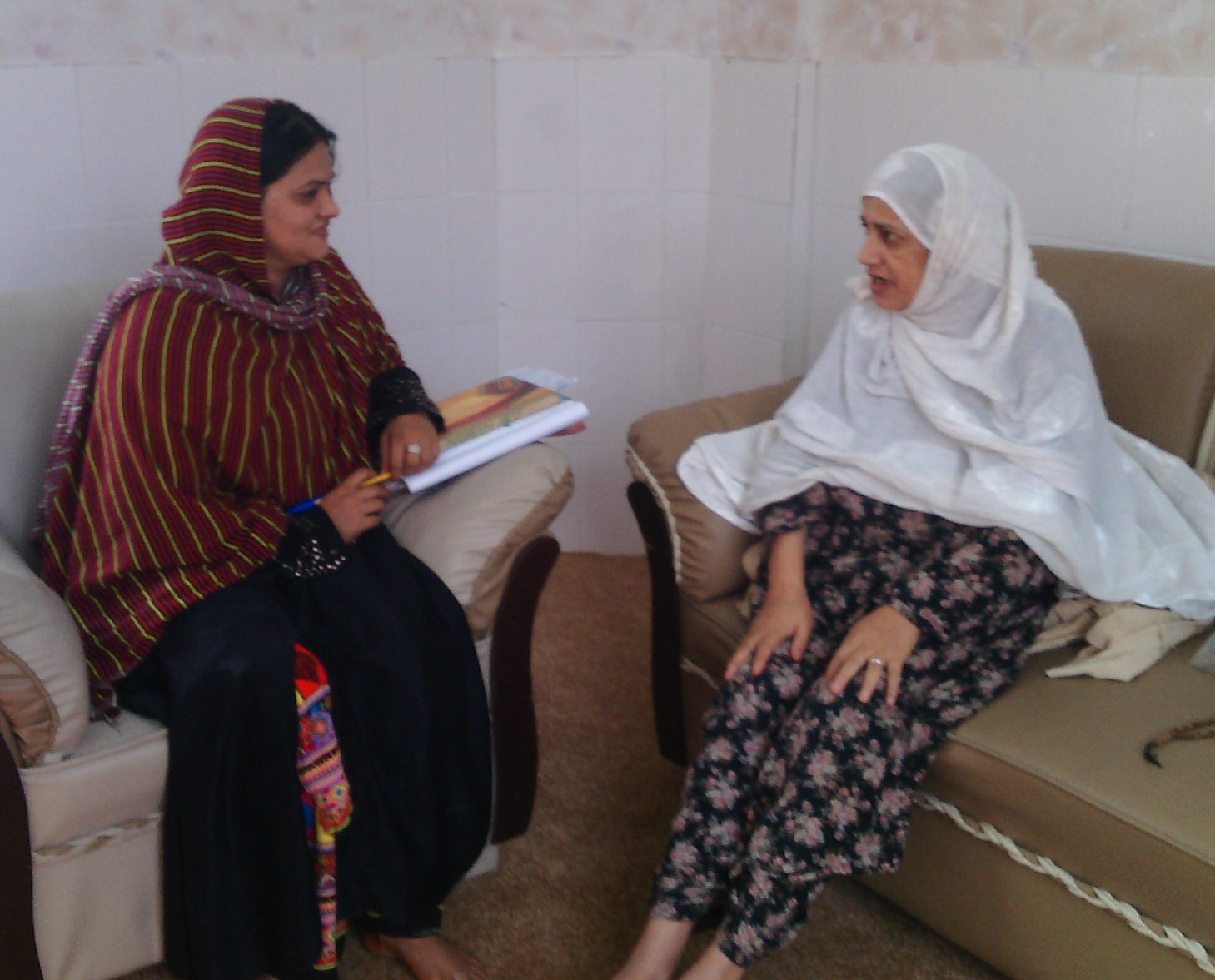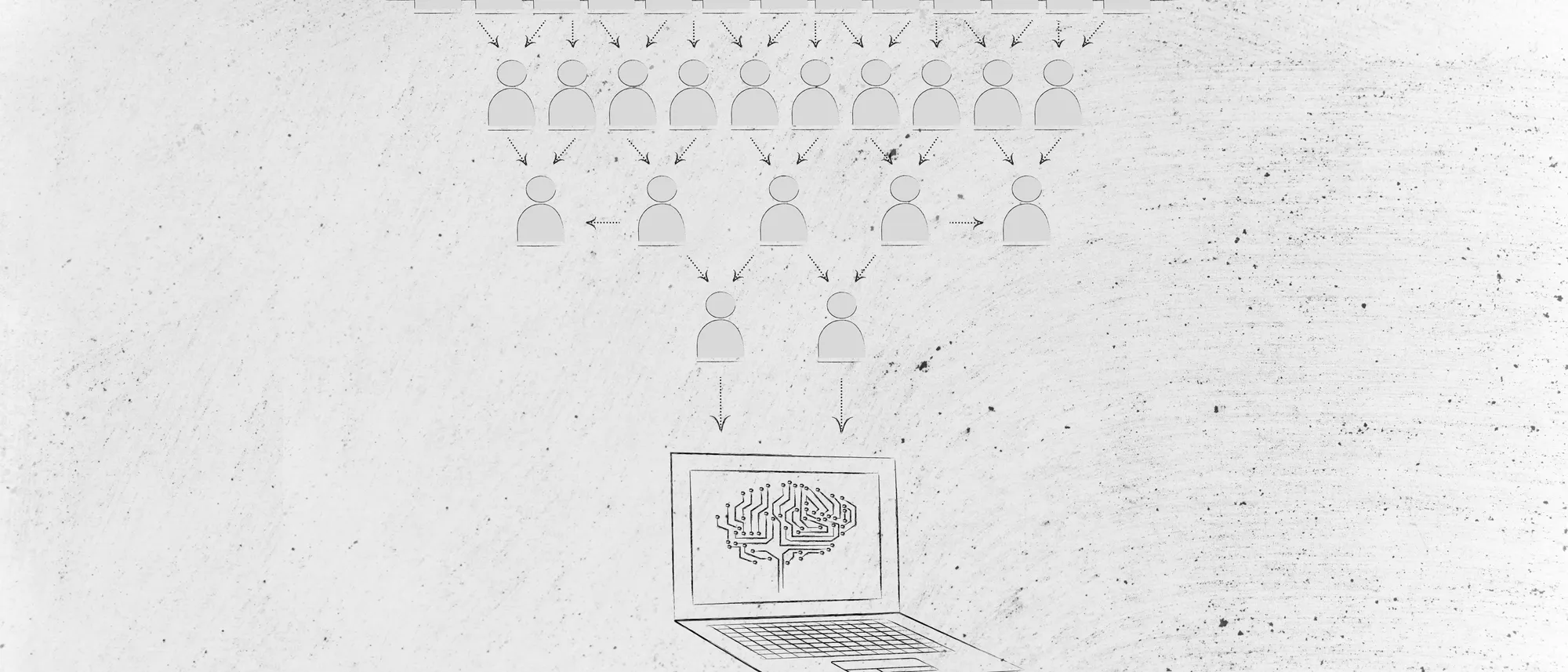Why conduct mental health research in unstable settings?

When people experience difficult life events such as urban violence, conflict or disasters, they are at a higher risk of experiencing symptoms of common mental health problems such as depression, anxiety and post-traumatic stress. Given potential long-term impacts like an inability to work or raise children, we believe it is critical to find ways to provide effective mental healthcare to those in need.
Making mental health services in low and middle income countries more widely available
A challenge in many low and middle income countries is low numbers of mental health professionals - a situation that worsens in disaster settings. It is also often the case that mental healthcare is only available in specialist centers in cities which are difficult for those living in rural settings to reach, and it is not uncommon for people to spend several days traveling to reach help. Due to the time and expense of such journeys, they become impossible for many, meaning they go without support.
To address this “task sharing”, the delivery of mental healthcare to non-specialists has proved effective. To be successful it is important that these non-specialists remain part of the national mental health system. This is done by providing training and supervision from specialist centers who make sure the programme is delivered correctly, and that anyone with more complex needs than the programme is designed to address is referred for specialist support. As a result, the number of people trained to provide mental health services has increased, with the first level of services provided by non-specialists based in primary health settings like community clinics. This is one way to make mental health help in unstable settings more widely available to those in need.
The Problem Management Plus programme and research to test effectiveness
With this context in mind, mental health experts Katie Dawson (University of New South Wales) and Mark van Ommeren (WHO Mental Health in Emergencies) developed a mental health programme called Problem Management Plus (PM+). PM+ is designed to be simple enough to be understood by anyone with a basic level of education and literacy. It combines skills helpful for addressing common mental health problems including becoming more active, problem solving, strengthening social support, and a stress management breathing technique.
By applying these skills, PM+ aims to address both mental health problems such as stress and feelings of helplessness, as well as practical problems such as livelihood or financial problems and interpersonal conflict. PM+ is delivered by a non-specialist who guides individuals through the programme. I was able to participate in PM+ training where I saw first-hand how these easy to apply skills can help address everyday problems we all face.
In collaboration with the PM+ developers, a group of local and international mental health professionals and academics are testing PM+ in a community-based setting in Peshawar, Pakistan. Sadly the Peshawar region frequently experiences urban violence, conflict and natural disaster. In the last 12 months this has included a Taliban attack on a School in Peshawar killing over 152 people, 133 of them children, and an earthquake that caused widespread devastation to homes as well as loss of lives. Testing PM+ in this unstable setting will, if it works, give confidence that it can help those living in unstable situations.
Overcoming obstacles to conducting scientific research in unstable settings
Of course, conducting scientifically valid research in disaster settings means overcoming obstacles. In the PM+ study this has included the team addressing community suspicion about research finding ways to prioritise mental health alongside many other primary health priorities like vaccination campaigns educating the public about the benefits of talking therapies as an alternative to medication and responding to unpredictable events including the Peshawar School attack and the recent earthquake and flooding. These practical obstacles are constantly being identified and responded to ensure the research remains scientifically valid.
Why it's important to conduct research in unstable settings
As conflicts and refugee movements continue, leading to potential negative mental health experiences of those affected, I believe developing primary mental health services that can address problems early and prevent them getting worse is an important goal. Research must be conducted in unstable settings to build evidence to aid decision makers seeking the most effective and cost-effective mental health programmes that provide critical support to those in need.
Next steps for PM+
It is only through research that we will know if a mental health programme such as PM+ is helping people and not doing them harm. We are currently nearing the end of testing PM+ in Peshawar, with over 170 people participating in the programme. Anecdotal results from participants and non-specialists suggest that it is helpful at addressing practical and mental health problems.
Over the coming months the final research assessments will be conducted, after which we will statistically analyse the results to see if PM+ has had an impact on mental health symptoms. If the results show the programme has improved the mental health of participants, then the next step will be to make it available in other disaster settings through partnership with the WHO, ensuring those in need of mental health support get it.
Anna Chiumento,
University of LiverpoolWhen people experience difficult life events such as urban violence, conflict or disasters, they are at a higher risk of experiencing symptoms of common mental health problems such as depression, anxiety and post-traumatic stress. Given potential long-term impacts like an inability to work or raise children, we believe it is critical to find ways to provide effective mental healthcare to those in need.
Making mental health services in low and middle income countries more widely available
A challenge in many low and middle income countries is low numbers of mental health professionals - a situation that worsens in disaster settings. It is also often the case that mental healthcare is only available in specialist centers in cities which are difficult for those living in rural settings to reach, and it is not uncommon for people to spend several days traveling to reach help. Due to the time and expense of such journeys, they become impossible for many, meaning they go without support.
To address this “task sharing”, the delivery of mental healthcare to non-specialists has proved effective. To be successful it is important that these non-specialists remain part of the national mental health system. This is done by providing training and supervision from specialist centers who make sure the programme is delivered correctly, and that anyone with more complex needs than the programme is designed to address is referred for specialist support. As a result, the number of people trained to provide mental health services has increased, with the first level of services provided by non-specialists based in primary health settings like community clinics. This is one way to make mental health help in unstable settings more widely available to those in need.
The Problem Management Plus programme and research to test effectiveness
With this context in mind, mental health experts Katie Dawson (University of New South Wales) and Mark van Ommeren (WHO Mental Health in Emergencies) developed a mental health programme called Problem Management Plus (PM+). PM+ is designed to be simple enough to be understood by anyone with a basic level of education and literacy. It combines skills helpful for addressing common mental health problems including becoming more active, problem solving, strengthening social support, and a stress management breathing technique.
By applying these skills, PM+ aims to address both mental health problems such as stress and feelings of helplessness, as well as practical problems such as livelihood or financial problems and interpersonal conflict. PM+ is delivered by a non-specialist who guides individuals through the programme. I was able to participate in PM+ training where I saw first-hand how these easy to apply skills can help address everyday problems we all face.
In collaboration with the PM+ developers, a group of local and international mental health professionals and academics are testing PM+ in a community-based setting in Peshawar, Pakistan. Sadly the Peshawar region frequently experiences urban violence, conflict and natural disaster. In the last 12 months this has included a Taliban attack on a School in Peshawar killing over 152 people, 133 of them children, and an earthquake that caused widespread devastation to homes as well as loss of lives. Testing PM+ in this unstable setting will, if it works, give confidence that it can help those living in unstable situations.
Overcoming obstacles to conducting scientific research in unstable settings
Of course, conducting scientifically valid research in disaster settings means overcoming obstacles. In the PM+ study this has included the team addressing community suspicion about research finding ways to prioritise mental health alongside many other primary health priorities like vaccination campaigns educating the public about the benefits of talking therapies as an alternative to medication and responding to unpredictable events including the Peshawar School attack and the recent earthquake and flooding. These practical obstacles are constantly being identified and responded to ensure the research remains scientifically valid.
Why it's important to conduct research in unstable settings
As conflicts and refugee movements continue, leading to potential negative mental health experiences of those affected, I believe developing primary mental health services that can address problems early and prevent them getting worse is an important goal. Research must be conducted in unstable settings to build evidence to aid decision makers seeking the most effective and cost-effective mental health programmes that provide critical support to those in need.
Next steps for PM+
It is only through research that we will know if a mental health programme such as PM+ is helping people and not doing them harm. We are currently nearing the end of testing PM+ in Peshawar, with over 170 people participating in the programme. Anecdotal results from participants and non-specialists suggest that it is helpful at addressing practical and mental health problems.
Over the coming months the final research assessments will be conducted, after which we will statistically analyse the results to see if PM+ has had an impact on mental health symptoms. If the results show the programme has improved the mental health of participants, then the next step will be to make it available in other disaster settings through partnership with the WHO, ensuring those in need of mental health support get it.
Anna Chiumento,
University of Liverpool
Stay updated
Sign up for our newsletter to receive regular updates on resources, news, and insights like this. Don’t miss out on important information that can help you stay informed and engaged.
Explore Elrha
Learn more about our mission, the organisations we support, and the resources we provide to drive research and innovation in humanitarian response.


